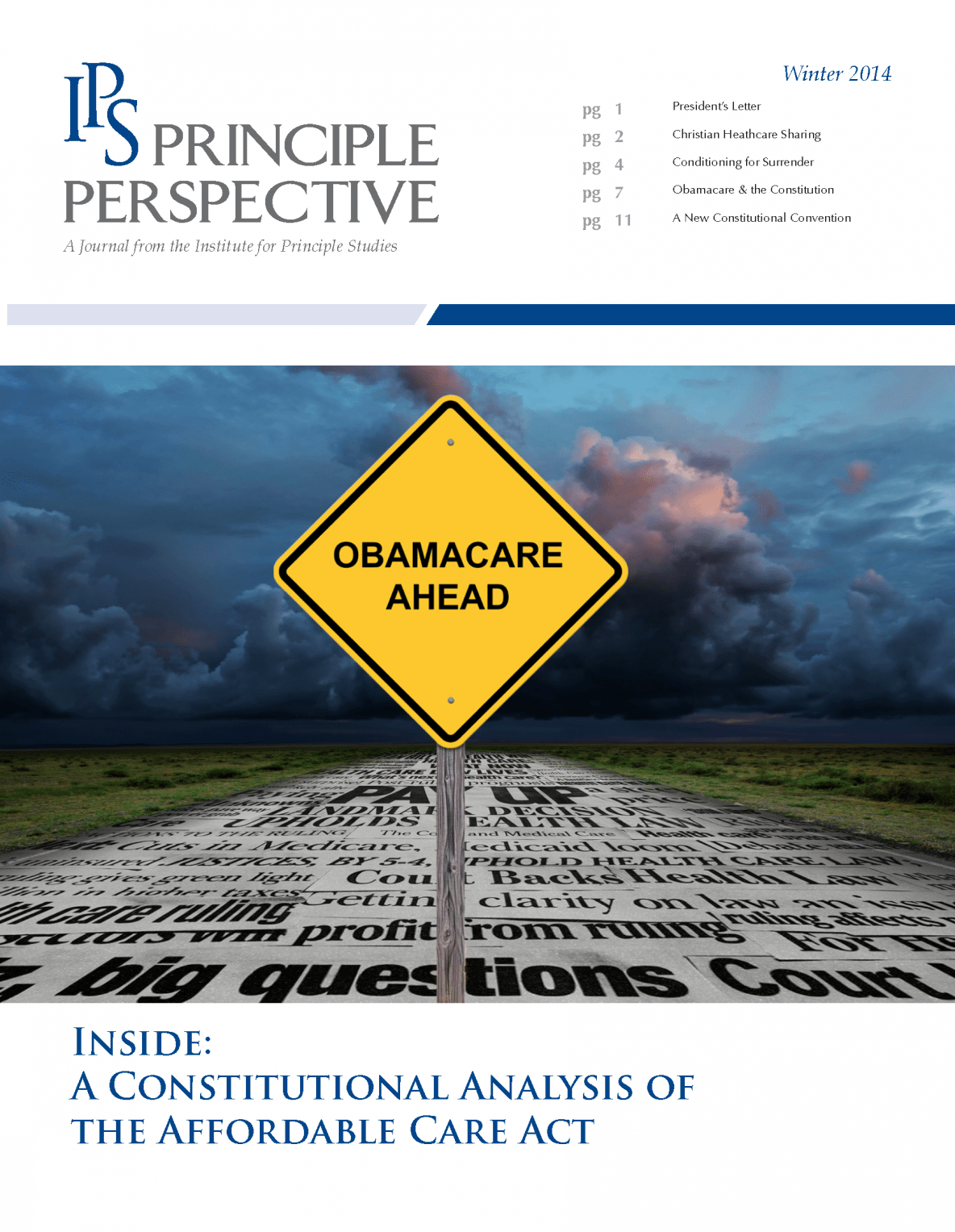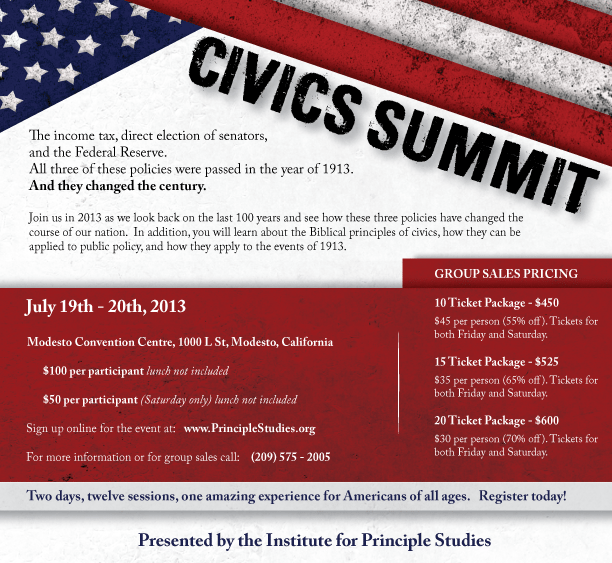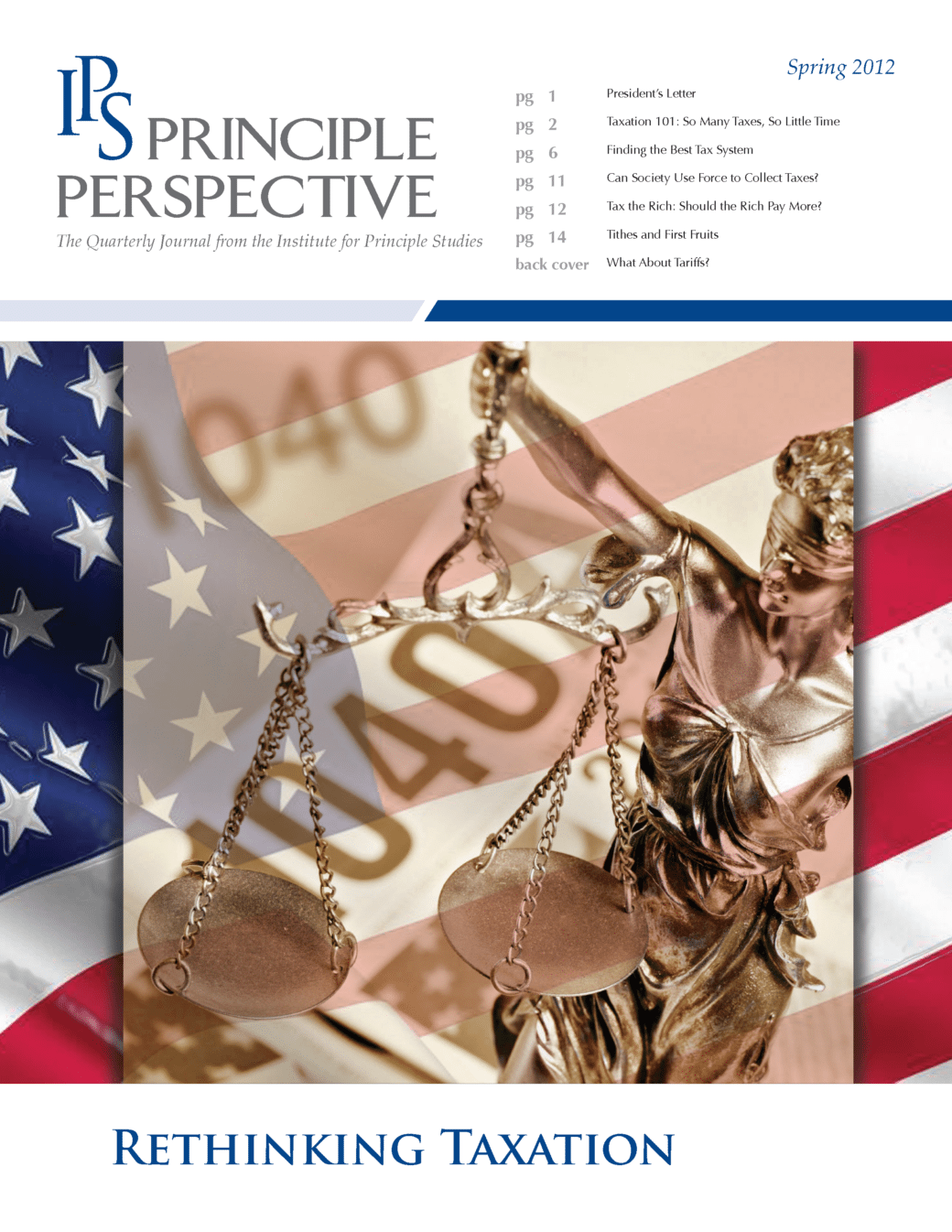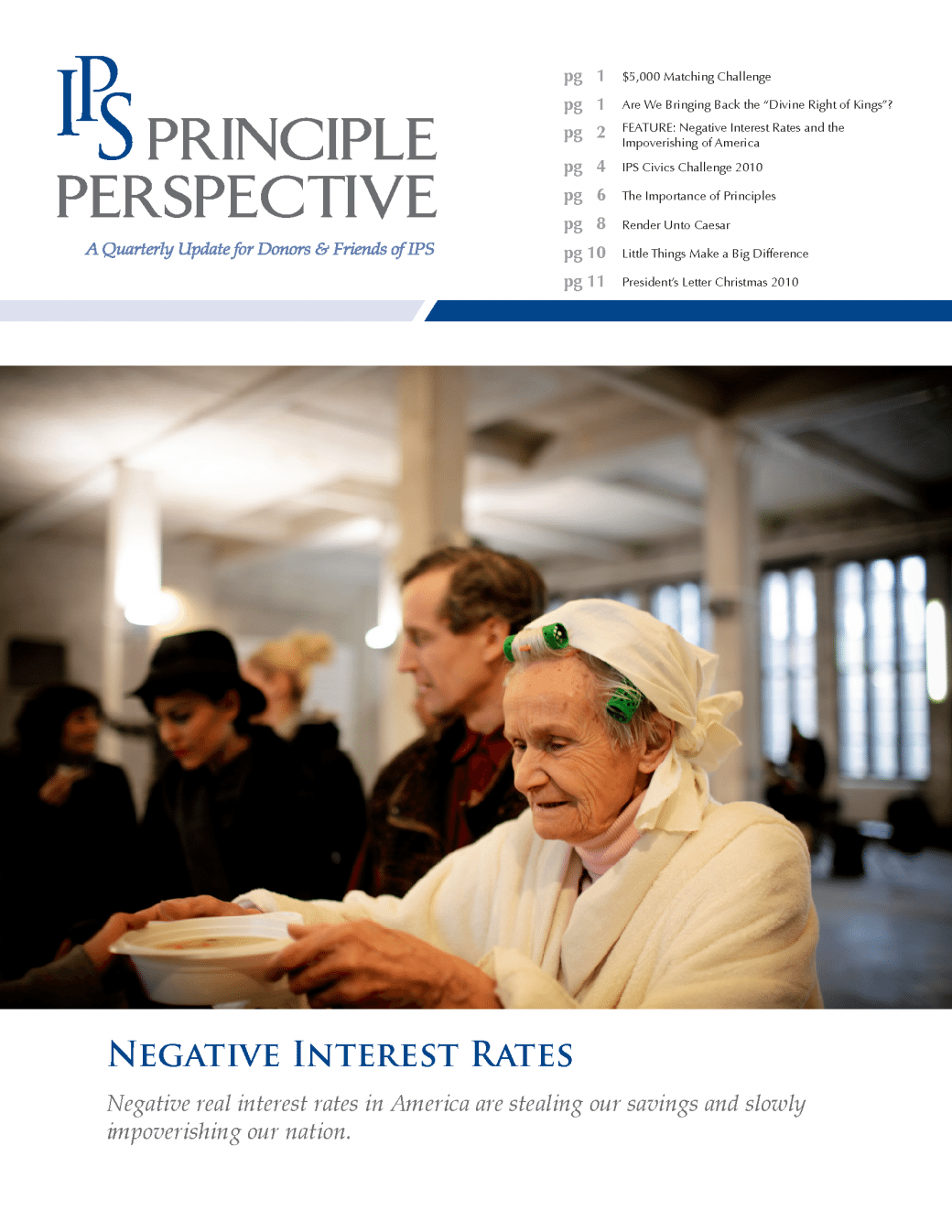It’s tax day… Well, actually, every day is tax day. But on the day of the income tax filing deadline, I thought it would be appropriate to talk about the hidden taxes that you don’t see on your 1040 tax return. Most people don’t realize it, but these hidden taxes are the most damaging taxes to our pocketbooks, our economy and our liberty. How much tax do you pay? There is no way to know. This is what makes hidden taxes so dangerous. We can have a public debate over the costs and benefits of ordinary taxes like those on income, … Read More
Crisis, Economics and the Compromise of Principle
An IPS Commentary By Mike Winther, President of the Institute for Principle Studies Crisis, Economics and the Compromise of Principle As I write this, the world is in the middle of the Covid-19 epidemic and Congress has just passed an economic relief bill with an advertised price tag of about 2.2 trillion dollars. This is an amount roughly equal to 10% of our 22 trillion dollar federal debt. This debt took 185 years to accumulate and now we are increasing it by 10% in one nearly unanimous congressional vote. In addition, the Federal Reserve is pumping vast amounts of liquidity … Read More
Private Property, Mass Transit, and the Exercise of Rights
By Mike Winther, President of the Institute for Principle Studies Private Property, Mass Transit, and the Exercise of Rights The political and civil rights that we cherish cannot be fully exercised without certain tools. These tools are material things that allow or enhance the exercise of a right. These material things are property, which has ownership that can be either public or private. As a society, we must make decisions as to which form of ownership we prefer for these tools. Should they be privately owned or publicly owned? Those who advocate for big government usually prefer public ownership and … Read More
Obamacare: A Constitutional Analysis
Obamacare: A Constitutional Analysis In 2012, IPS commented on the 5-4 Supreme Court decision in which the Affordable Care Act was upheld. Those words of the past are eerily relevant to today’s decision that once again upholds socialized medicine in America. Below is our article from 2012 on the previous Court decision. Supreme Court decision: What did we expect? When did we lose this battle? We lost it 44 years ago when we allowed government to force us to purchase health care in the Medicare Act. We lost the battle when George Bush passed the prescription drug program in 2003. … Read More
Rethinking Taxation
Rethinking Taxation Death and taxes may be inevitable in life, but this fact doesn’t excuse us from our responsibilities to handle both of these eventualities in a prudent and judicious manner. Our legal system endeavors to establish clear, cautious standards for dealing with issues of life and death—our procedure for trying a capital crime being just one example. In like manner, we should be no less deliberate with our tax policy. Citizens have never enjoyed (and probably never will enjoy) paying taxes, but if some taxation is going to be necessary, we should endeavor to find the best way to … Read More
Negative Interest Rates
Negative Interest Rates If you have seen bank advertisements for CD rates, or if you have called your local bank or broker lately, you know that interest rates are abysmal. As I write this, Ally Bank is touting their 2-year certificate of deposit at a rate of 1.78%—I guess that is supposed to be a good deal these days. More important than interest rates on deposits, however, is something called the real interest rate. This is the interest rate after considering rising prices. Price increases are usually measured by the government with a statistic called the Consumer Price Index (CPI). … Read More
Render Unto Caesar
An IPS Commentary By Michael R. Winther, President of the Institute for Principle Studies Render Unto Caesar: An Exposition of Matthew 22:15-22 As an advocate of limited government and an advocate of government by biblical standards, I am frequently asked about Jesus’ words when He tells us to “render unto Caesar what is Caesar’s.” Many Christians have difficulty reconciling this admonition of Jesus with the concept of limited taxation, supposing that Jesus is instructing Christians to always render unconditional submission to the state in both action and finance. Let’s look at Matthew’s account of this teaching. Matthew 22:15-22 (ESV) Then … Read More






